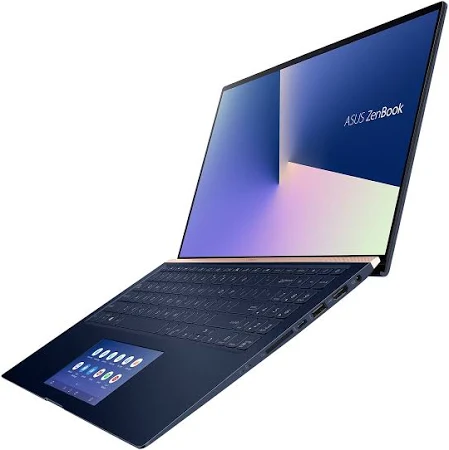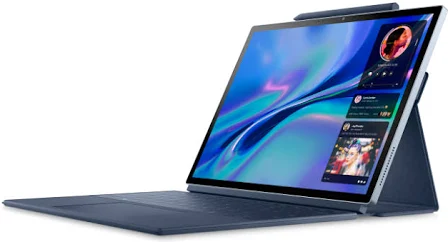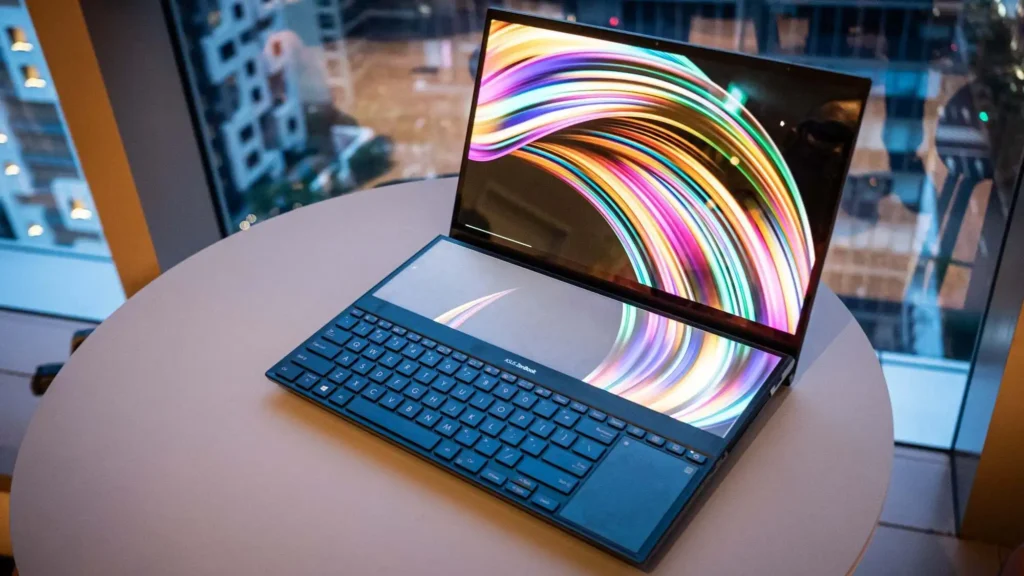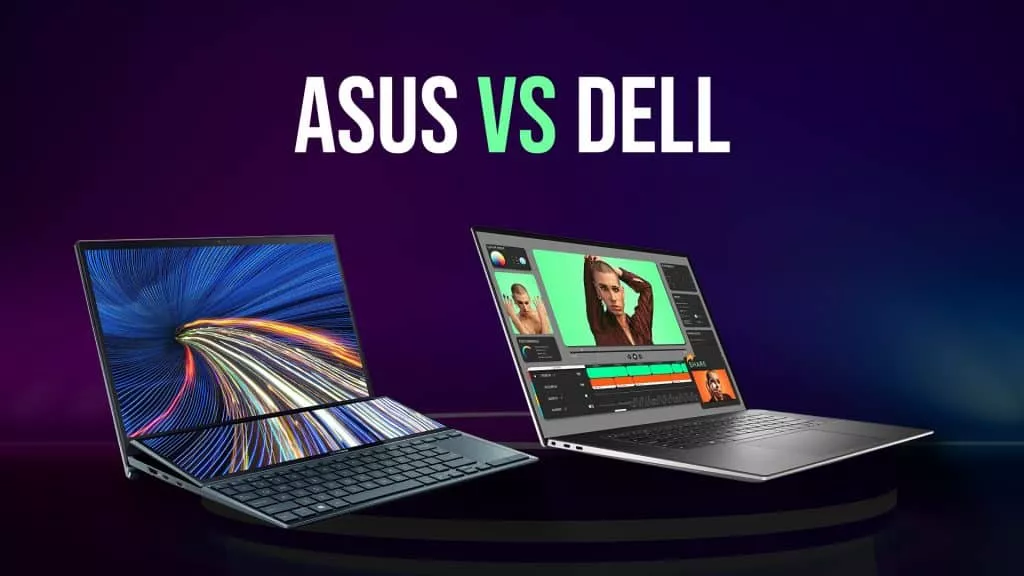Asus Zenbook 15 vs Dell XPS 13: Which Ultrabook Reigns Supreme?
When it comes to Ultrabook, the Asus Zenbook 15 and the Dell XPS 13 are leading contenders, offering a mix of performance, portability, and style. This blog will explore their features, design, performance, and overall value to help you decide which Ultrabook is the best fit for your needs.
Table of Contents
Design and Build Quality

Asus Zenbook 15
The Zenbook 15 boasts a sleek, brushed-metal finish with the iconic concentric circles on the lid, giving it a premium look and feel. It is relatively lightweight for a 15-inch laptop at just 3.6 pounds, making it portable without compromising on screen size. The build quality is robust, with minimal flex, and the hinge mechanism is smooth and durable.
Dell XPS 13

The Dell XPS 13 is often regarded as a benchmark in Ultrabook design. Its CNC-machined aluminum chassis is both lightweight and durable, while the carbon-fiber palm rest adds a luxurious touch. The XPS 13’s near-borderless Infinity Edge display maximizes screen space, making the laptop incredibly compact. Weighing just 2.8 pounds, it’s one of the most portable 13-inch laptops available.
Comparison
The Dell XPS 13 takes the lead in portability due to its lighter weight and smaller footprint. However, if a larger screen is your priority, the Zenbook 15’s design might appeal more.
Display Quality

Asus Zenbook 15
The Zenbook 15 comes with a 15.6-inch Full HD display, offering a resolution of 1920 x 1080 pixels. It is bright and vibrant, with excellent color accuracy that makes it ideal for creative professionals and media consumption. The display supports 100% of the sRGB color gamut, ensuring accurate color reproduction for tasks like photo and video editing.
Dell XPS 13
The Dell XPS 13 excels in display quality, especially with its 4K UHD+ option. If you need superior display resolution and quality, the XPS 13 is the better choice.
Comparison
The Dell XPS 13 excels in display quality, especially with its 4K UHD+ option. If you need superior display resolution and quality, the XPS 13 is the better choice.
Performance and Battery Life
Asus Zenbook 15
Powered by Intel’s 11th Gen processors, the Zenbook 15 offers solid performance for a wide range of tasks, from everyday computing to more demanding applications like video editing. It also features an NVIDIA GeForce GTX 1650 Max-Q GPU, which is a significant advantage for graphics-intensive tasks. The battery life is impressive, offering up to 10 hours on a single charge, making it suitable for all-day use.
Dell XPS 13
The Dell XPS 13 is equipped with Intel’s latest 13th Gen processors, offering enhanced performance and efficiency. Although it lacks a dedicated GPU, the integrated Intel Iris Xe graphics are capable enough for most productivity tasks. The XPS 13 also boasts excellent battery life, with up to 12 hours of use, depending on the configuration and usage.
Comparison
If you require extra graphics power, the Zenbook 15’s dedicated GPU is a clear advantage. However, the XPS 13’s newer processors and longer battery life make it a formidable competitor for everyday use.
Port Selection and Connectivity
Asus Zenbook 15
The Zenbook 15 offers a versatile selection of ports, including USB-A, USB-C, HDMI, and a microSD card reader. This variety ensures you can connect to a wide range of devices without needing additional adapters.
Dell XPS 13
The XPS 13, while focusing on thinness, offers fewer ports. It includes two Thunderbolt 4 ports, a headphone jack, and a microSD card slot. Although this minimalist approach aligns with modern trends, it may require additional dongles for some users.
Comparison
If you prefer having a variety of ports, the Asus Zenbook 15 is the better option. However, if you’re already invested in the USB-C/Thunderbolt ecosystem, the XPS 13’s port selection will be sufficient.
Conclusion
Both the Asus Zenbook 15 and the Dell XPS 13 have their unique strengths, making them top choices in the ultrabook market. The Zenbook 15 shines with its larger display, dedicated GPU, and wider port selection, making it an excellent choice for creatives and users needing more power. On the other hand, the Dell XPS 13 stands out with its superior build quality, display options, and longer battery life, catering to professionals who prioritize portability and screen quality.
Ultimately, your choice depends on your specific needs. If you’re looking for a lightweight Ultrabook with a stunning display and long battery life, the Dell XPS 13 is hard to beat. However, if you need a larger screen and extra graphics power, the Asus Zenbook 15 is a compelling option.




